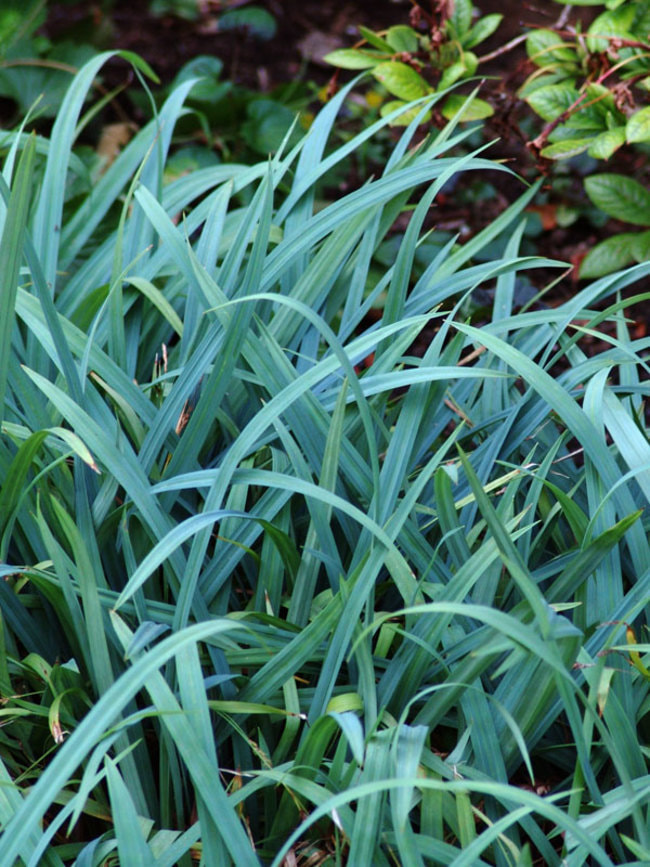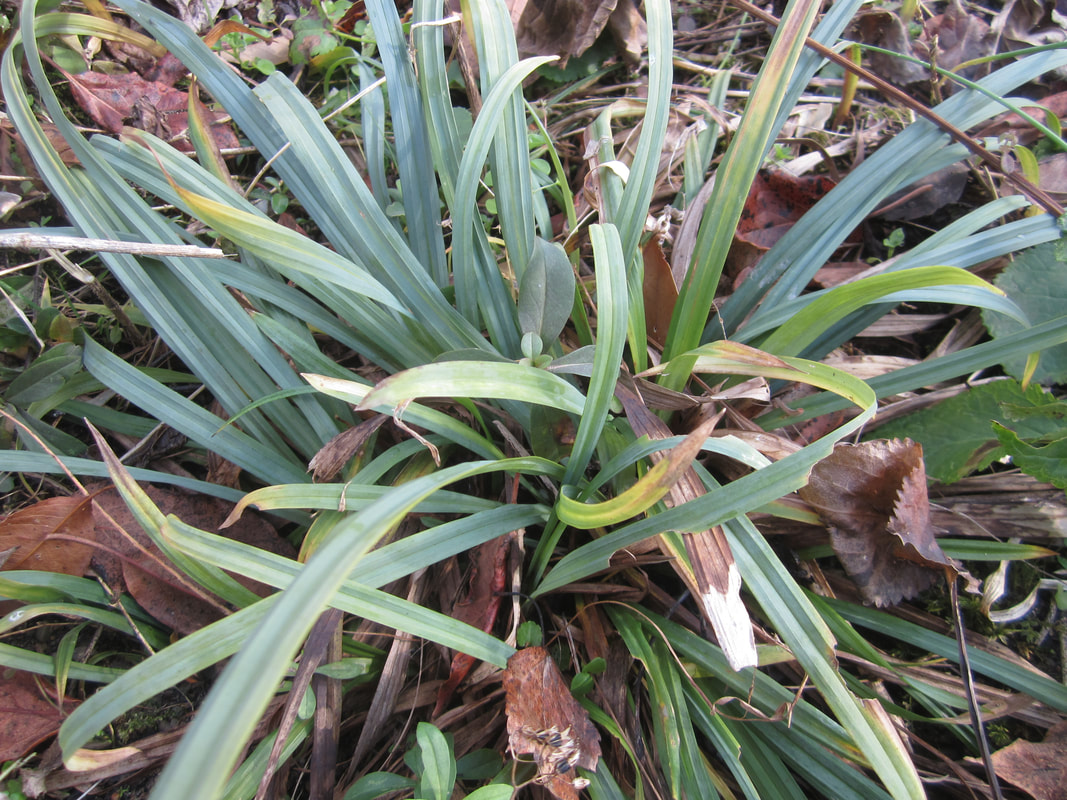Blue Wood Sedge
Carex flaccosperma
Carex flaccosperma is a beautiful, native sedge with half-inch-wide, greenish blue leaves. It forms a small clump that will spread slowly via short rhizomes to form a sturdy, evergreen ground cover. It thrives in shade to part shade and mixes easily with ferns, hostas, and other shade perennials. It can take partial sun if it has consistent moisture. Blue Wood Sedge is especially at home in woodland gardens. Greenish-white flowers appear in late spring, followed by interesting seed heads. It’s often found on wet sites and is tolerant of poorly drained soils as well as average garden soil. Does best with consistent moisture but is reasonably drought tolerant once established.
Blue Wood Sedge is native to the U.S. from Texas to the East Coast and up to Illinois in wet-mesic deciduous forests, usually in acidic loams low in calcium, on flood plains and in swamps. Some taxonomic sources list this species as C. xanthosperma, but in the interest of familiarity, we will keep it as C. flaccosperma for now.
Carex flaccosperma is a beautiful, native sedge with half-inch-wide, greenish blue leaves. It forms a small clump that will spread slowly via short rhizomes to form a sturdy, evergreen ground cover. It thrives in shade to part shade and mixes easily with ferns, hostas, and other shade perennials. It can take partial sun if it has consistent moisture. Blue Wood Sedge is especially at home in woodland gardens. Greenish-white flowers appear in late spring, followed by interesting seed heads. It’s often found on wet sites and is tolerant of poorly drained soils as well as average garden soil. Does best with consistent moisture but is reasonably drought tolerant once established.
Blue Wood Sedge is native to the U.S. from Texas to the East Coast and up to Illinois in wet-mesic deciduous forests, usually in acidic loams low in calcium, on flood plains and in swamps. Some taxonomic sources list this species as C. xanthosperma, but in the interest of familiarity, we will keep it as C. flaccosperma for now.

